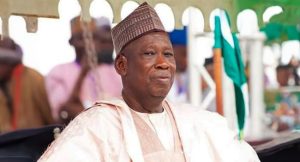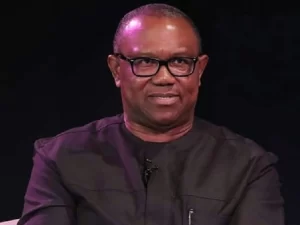The President, Major General Muhammadu Buhari, launched the National Crisis Management Doctrine on Friday in Abuja.
The doctrine, he said, would bridge the gap created by the extensive deployment of security services through fostering collaboration amongst Ministries, Departments, and Agencies.
According to a statement signed by his Special Adviser on Media and Publicity, Femi Adesina, President Buhari noted that the NCMD shows his regime’s renewed promise and commitment to managing the country’s crisis.
The statement is titled ‘President Buhari launches National Crisis Management Doctrine.’
Speaking at the launch, the President commended the efforts of the National Security Adviser, Major-General Babagana Monguno (retd.), his staff and members of the working group from various responder MDAs for the remarkable work in developing the doctrine.
He described the NCMD as a significant milestone in recognising the need for collective efforts to achieve coordinated, effective, and efficient national crisis management.
“This shows the renewed promise and commitment of this administration to managing the crisis in the country,” the President said.
He recalled that at the inception of the regime, Nigeria was faced with multiple security challenges ranging from terrorism and kidnapping to armed banditry, ethnic militia attacks, oil theft, rape, gun running, and various acts emanating from violent extremism.
Buhari said, “The emergence of the Boko Haram terrorist group, as well as bandits and kidnappers in Nigeria, considerably changed the country’s security situation, leaving panic in the minds of the populace.
“These and other security challenges confronting the nation tend to stretch the deployment of our security agencies, resources and national security apparatus.
“Owing to the dynamics of these crises, the Office of the National Security Adviser revised the National Counter Terrorism Strategy which I endorsed in August 2016.
“Within this strategy are certain works streams which include the Prepare and Implement strands that seek to mitigate the impact of terrorist attacks by building resilience and redundancies to ensure continuity of business; and a framework for the mobilization of coordinated cross-government efforts respectively.
“I am glad that the Office of the National Security Adviser has not relented in its efforts to implement the NACTEST by coordinating relevant Ministries, Departments and Agencies to develop the National Crisis Management Doctrine,’’ he said.
Buhari, therefore, urged the ONSA to continue to coordinate with crisis response stakeholders to achieve greater success.
President Buhari also thanked the British Government for its collaboration in developing the Doctrine and the United States Government for its support, urging them to sustain the relationship.
In his remarks, the NSA explained that work on the doctrine started in 2014 but was given impetus after the President endorsed the revised NACTEST, which has five work streams: Forestall, Secure, Identify, Prepare and Implement.
Monguno noted that the NCMD, which is a subset of the NACTEST, fulfills the work streams to ‘Prepare’ and to ‘Implement.’
He said, “The doctrine provides a detailed methodology for national crises response, outlining how the various relevant MDAs should interact at the strategic, operational and tactical levels.
“It is to be noted that the NCMD can be used to manage both malicious threats and civil emergencies owing to the general principles set out within it.”






